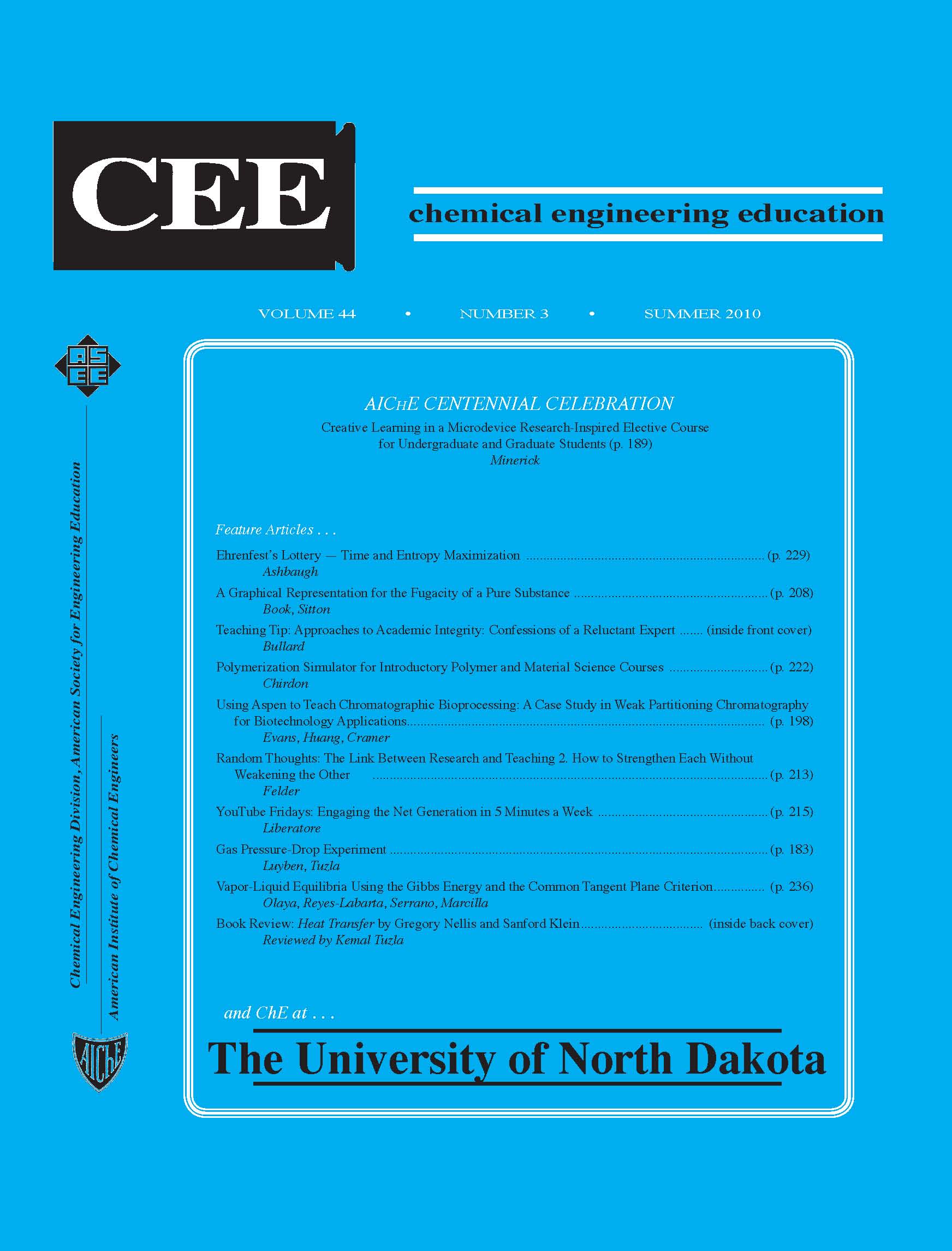Using Aspen to Teach Chromatographic Bioprocessing: A Case Study in Weak Partitioning Chromatography for Biotechnology Applications
Abstract
The commercial simulator Aspen Chromatography was employed to study and optimize an important new industrial separation process, weak partitioning chromatography. This case study on antibody purification was implemented in a chromatographic separations course. Parametric simulations were performed to investigate the effect of operating parameters (e.g., feed load, salt concentration) on the productivity and yield of this separation process. The course project served to teach students basic simulator operation, apply course material to a separation challenge from the biotechnology industry, and open-ended problem exploration for process optimization.


